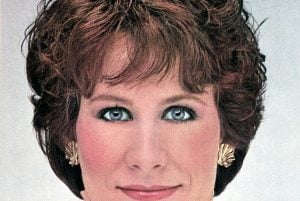The unisex fashion trend started in the late 60s with his and hers matching clothes
No, we’re not talking about bell-bottoms, paisley shirts or go-go boots, all of which managed to become iconic of the era. The 70s are also when matching unisex clothing was popular — outfits and separates both men and women could wear.
Unisex clothing wasn’t entirely new, but it gained traction in the 60s and 70s, fueled by the growing influence of youth culture, feminism and the push for equality. Designers started creating pieces that worked for both men and women, from simple tunics and slacks to jumpsuits and coordinated sets. This shift made fashion more accessible and practical, with styles that worked across genders instead of reinforcing differences.

By the mid-70s, major brands were jumping on the trend. Retailers marketed matching outfits as a fun way for couples to express unity, often featuring bold prints and relaxed silhouettes. Some took it further, offering entire family sets so that parents and kids could coordinate. While some loved the novelty, others pushed back, preferring more traditional menswear and womenswear.
And while some couples were just coordinated (which for certain occasions, like Valentine’s Day, isn’t necessarily the worst in cringe); many of these outfits were 100% mirror-image, full-on matching.

But it wasn’t the unisex clothing trend that was the problem, because as you can see in the 1968 article below, Americans and Europeans alike were ready to embrace — and even celebrate — this gender-neutral phenomenon.
What’s unfortunate is that the his-and-her trend was so aggressively marketed as the ultimate display of romantic affection. As a result, many couples bought into the too-cute lookalike fad, donning matchy-matchy styles like those featured here. Admittedly, it doesn’t help that some of these styles are just flat-out awful on their own, let alone in duplicate.

The trend didn’t last forever — by the 80s, fashion swung back toward more defined gendered styles — but its impact stuck. Today, unisex clothing is everywhere, from casual streetwear to high fashion. What once felt like a bold experiment is now just part of how we dress.
Below, we’ve collected vintage photos capturing the unisex fashion wave of the 70s.Have a look for yourself, and then tell us: Are couples who dress in matching clothes sweetly romantic… or just cheesy?

Unisex fashions the latest in style world (1968)
By Rubye Graham – The Philadelphia Inquirer (Pennsylvania) August 28, 1968
The newest development is defined simply as look-alike clothes for both men and women.
Unisex clothing is the newest development in fashion. Maybe you’ve heard it called something else (the he-she look, his-and-hers, couples’ dressing, look-alike fashions), but the message is the same.
ALSO SEE: Cozy 60s fashion: 100 swoon-worthy vintage sweaters you could still wear today

As Life Magazine summed the new trend up in a recent feature: “This is the year that what’s his is hers, and what’s hers is his — in a word, unisex.”
Unisex, at least in the world of fashion, is defined as look-alike clothes for both men and women. The same clothes can sometimes be worn by either sex, other times the styling is very similar.

It is more fun and more fashionable when couples wear the same or similar clothes, but it also means a closing of the gap between strictly feminine clothes for girls, strictly masculine ones for guys.

Unisex clothing styles: Many on the market
Already any number of these unisex fashions exist — Nehru jackets, shirts (turtlenecks, stock-tie styles, Cossacks, embroidered fronts), chains, chunky shoes, and such.
ALSO SEE: 1970s men’s shoes came in a variety of bold (and sometimes offbeat) styles

Unisex dressing, which like many other recent fashions started with the youth in New York’s Greenwich Village, Paris’ Left Bank, and London’s Chelsea district, has already reached the couture level.
Among couturiers who have featured the look are Pierre Cardin, with his astronaut suits closed by industrial zippers; Valentino with matching black-and-white evening suits, and Ken Scott with couples dressed in matching prints.

Unisex clothing may differ
Unisex fashions, by the way, do not have to be exact matches when they are worn by couples, but instead, they are usually complementary.
For example, Valentino’s evening outfits for women have long skirts, while the men wear evening suits — but the male and female mannequins came out in identical fabrics, black velvet, and white moire.
MORE: Vintage shoe stores: See what shoe shopping really used to be like

Nor for that matter, do there have to be couples, as long as girls dress to look more like boys, and boys like girls.
Last week, the first unisex boutique opened in Greenwich Village. Called Experiment One, it is an off-premises venture by Alexander’s, the New York department store.

Most of the clothes are designed for the 16 to 25 age group, and the press release for the opening says: “The clothes are so designed that when placed on a hanger, it is difficult to tell for which sex the garment is intended.”

Unisex clothing at fun prices for 70s youth
Most of the unisex clothes being worn are still for the 16-25 age group and at fun prices. But it should be mentioned that London’s status shirtmakers such as Mr. Fish and Turnbull and Asser are doing big business on matching his-and-her shirts.

Valentino reports orders on matching black-and-white evening outfits from a number of famous couples including Count and Countess Crespi, and Mr. and Mrs. Tony Curtis.
Lilly Pulitzer is having a run on his-and-hers jeans for the beautiful people in matching prints.
DON’T MISS: The unlikely history of Levi’s jeans – or, how clothes from 150 years ago are still fashionable today

Unisex clothing: Report from Paris
Gerald Y. Dryansky, head of the Paris bureau of Women’s Wear Daily, writes from Paris: “The boys who are walking off with the girls on the terrace of the Flore are wearing see-through black lace shirts open to the waist, colorful tight corduroys — red, yellow, orange — and occasionally chain belts.
“They wear bracelets, even earrings, and their long scissor-chopped locks have been under hair dryers, not open Wildroot bottles.
ALSO SEE: See some far-out vintage ’70s fashions for teen girls

“The girls they walk off with dress exactly the same way. Every major sportswear fad in Paris in the past few months has spread simultaneously among boys and girls.
“These include wide-toed clunky shoes; tight, tight sweaters; wide garrison belts; slippery-looking translucent nylon para jackets; Cossack shirts, embroidered-front shirts, and Indian scarves.”

ALSO SEE: These vintage 1960s shoes for women were fashionable & far out
Unisex clothing: “Basic to our culture”
Rudi Gernreich is among the American designers to believe in unisex fashions. “The concept,” says Rudi, “is basic to our culture and thoroughly healthy.
“Today our notions of masculine and feminine are being challenged as never before. The basic masculine-feminine appeal is in people, not in clothes.”

Rudi interprets the unisex look for fall-in jersey tunics closed with industrial zippers and worn with tights. He wears this kind of getup himself and makes it for gals in his Harmon knitwear line.
James Laver, until recently the curator of prints and drawings at London’s famous Victoria and Albert Museum, and perhaps the world’s most famous fashion historian, told me 18 months ago in London that both sexes are eventually going to end up in tunics and tights.
MORE: Bell-bottoms & beyond: The fashionable ’70s pants for women that were hot in 1973

He saw the minidress and colored tights as the first step for girls, and the flowered shirts. Nehrus, turtlenecks, chains, and tight pants are a step in that direction for boys.
Unisex clothing: Don’t laugh it off
Of course, many people are trying to laugh off the idea of unisex. Those who say “Who, me?” are sometimes right then and there wearing unisex fashions.

Conservative department stores are running ads of his-and-hers garments including Nehrus, shirts, pants.
And many, looking for that double sale, show such things as a signature or tie-silk scarves, chain belts, and chain — and — medallion necklaces worn by both sexes.
ALSO SEE: Vintage menswear: See 60 old-school suits guys were wearing back in the 1970s

Unisex clothing, anyone? And will the gentleman who borrowed my new Saint Laurent scarf — and gold zodiac medallion and chain — please return them?
I’d like to wear them with my Nehru pantsuit.
Vintage denim jumpsuits (1977)

Matching vintage his n hers vested suits from the 1970s

Matching jeans and sweaters for men and women

Matching retro sweaters for men and women (1977)

Vintage unisex clothing: Matching coats & jackets from the 1980s
“In the land of his-and-hers, there’s excitement in Jacket Country!”



Unisex clothing: Kimono-style pajamas and bathrobes for men and women






















One Response
From my recollection of the 70s, it didn’t seem that unisex and his/hers outfits — especially jumpsuits — were ever very popular.